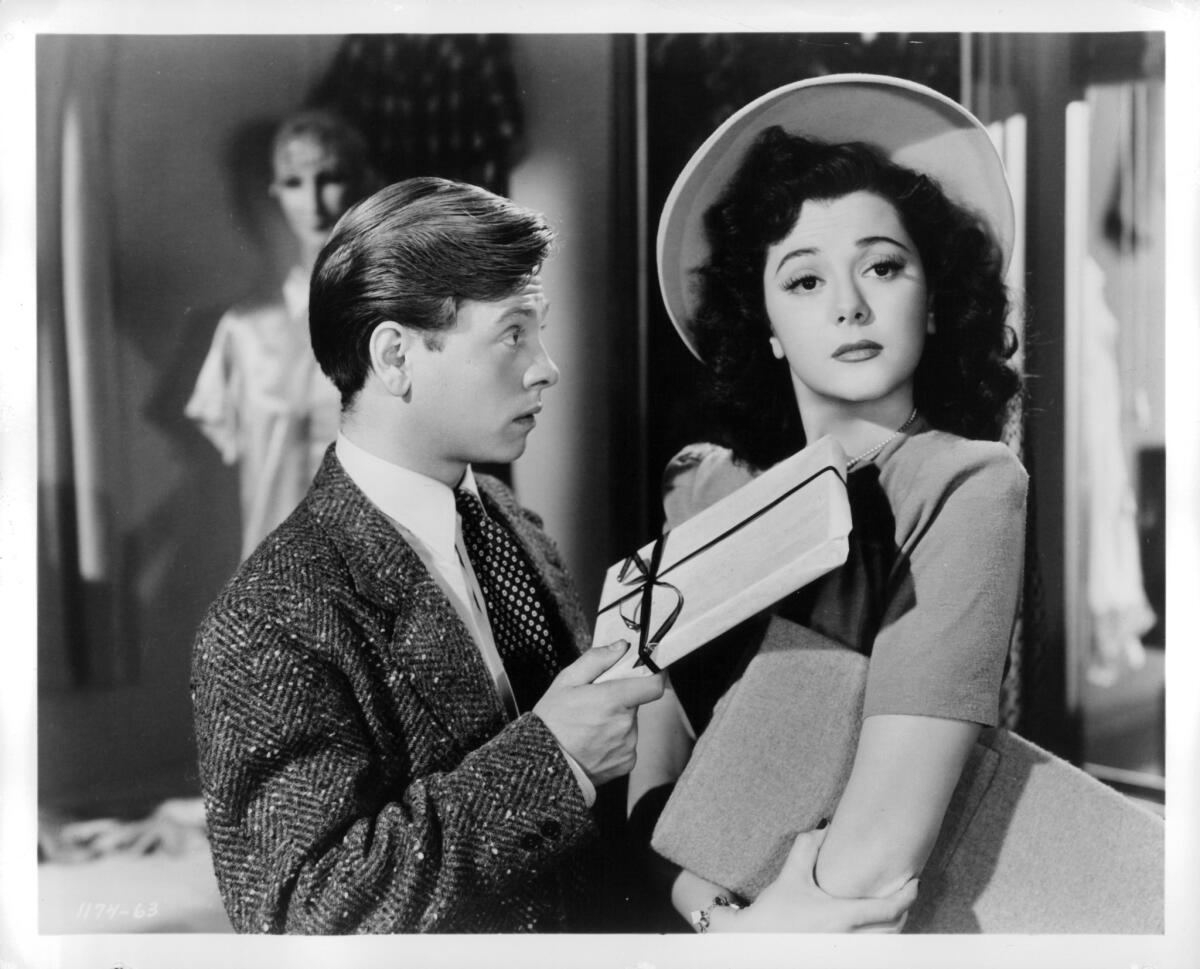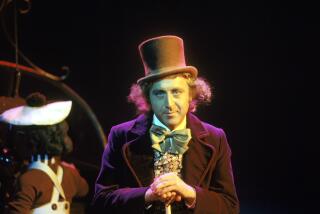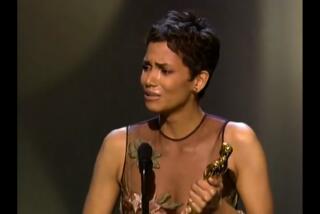Mickey Rooney appreciation: Remembering an American icon on screen

There are many reasons to take a moment to mourn Mickey Rooney’s passing over the weekend at the grand old age of 93. For me, it truly feels like the end of an era, a door closing on a golden age, when movies were the great escape.
A major star in a time when the famous didn’t seem so much like “us,” he did. His smile turned his face into a landscape where laughter roamed free. You got the sense that he would actually want us to say ‘Hi,’ if he were spotted on the street. It was a kind of easy-going sensibility that would mark his screen career, though by most accounts not his far more complicated real life.
What Rooney represented, at least for me, was a kind of American ethos on screen that we rarely, if ever, see today. The innocent male, infused with optimism, but smart. Determined, by jiminy, to make it – but with charm, heart and decency. The innocence and acceptance he telegraphed through the countless characters he played never lost their appeal. He took the most difficult issues on – from economic hard times to war and all states of love, and made anyone watching not only believe the worst was bearable, but that silver linings could be found.
PHOTOS: Mickey Rooney: 1920-2014
Perhaps if the actor’s career hadn’t been cemented early on by his portrayal of Andy Hardy, I’d feel differently. Andy was a product of the Midwest and a loving family framed by traditional values. Hard work, honesty, integrity, the Hardys were folks who met the world head-on, who helped their neighbors, who prayed on a regular basis.
Rooney began to work his way into my sense of film via television as his many Andy Hardy escapades took up full-time residence on the small screen when I was a kid. “Hardy” and others of his classics colored my childhood with the idea that dreams could come true. As they did in “Babes in Arms,” the 1939 Busby Berkeley musical, where a couple of kids (Judy Garland was the other one) try to hit the big time. It would earn him one of four Oscar nominations. His two wins were more honorary in nature, 1939’s Juvenile Award shared with another rising young star, Deanna Durbin, and 1983’s Oscar for his body of work, or at least 50-years of it.
Rooney’s films got a new life and the actor got new fans the old-fashioned way – with the kind of work that stood up over time. In that way, Rooney locked up a spot in the collective conscience as well. He was one of those actors who came to define the art form itself. His face was one of the few that nearly always makes the cut in Hollywood retrospectives, the kind of fond recollections that tend to include Elizabeth Taylor, Katharine Hepburn and John Wayne.
REACTION: Social media lights up at news of Rooney’s death
The man, small in stature, soft around the edges, represented a different sort of male than the towering Wayne. More urban, less pioneer, more newsboy cap, than 10-gallon cowboy, more accessible always. Though like Wayne, Rooney would go to war on screen, unlike The Duke, whose “Green Beret” or Col. Davy Crockett in “The Alamo” would be on the front lines, Rooney hit the mark with that light touch he brought to so much.
More Rooney-esque is the World War II comedy, 1956’s “The Bold and the Brave,” where women and craps, rather than Germans, occupied most of the young soldiers’ attention. It would bring him another Oscar nomination. His last Oscar nomination would come in 1980 as an old trainer helping a young boy in “The Black Stallion,” though I liked his disillusioned jockey in 1944’s “National Velvet” with Elizabeth Taylor better.
The actor drifted to the edge of the spotlight years ago, before the movies caught on to the idea of starring roles for its older artists. I think of Christopher Plummer winning an Oscar at 82 for his supporting role in 2012’s “Beginners,” or June Squibb, 84, nominated for her work in “Nebraska” this year and wonder what Rooney might have done had he been given more.
PHOTOS: 12 memorable film and TV roles for Mickey Rooney
It’s not that the actor ever disappeared, he didn’t. Rooney had a role in several projects each year, starting with “Not to Be Trusted,” a 1926 short when he was five. That desire, or need, to work never receded. Rooney leaves behind three more projects in various stages.
After his most productive run -- a robust series of decades that spanned the ‘30s through the ‘70s -- he was always turning up small in films. Making forays into TV, 1981’s “Bill,” in which he played an aging mentally challenged man trying to make his way in the world, probably the most memorable.
The more recent roles tended to be nods to the iconic Hollywood figure he had become. Like the small town resident in 2011’s “The Muppets.” Rooney’s was little more than a face in the crowd, yet the perfect one to catch your eye in this nostalgic ode to the movies of yesteryear.
It is why Rooney’s death feels like the passing of an era. Not one I saw first hand, but one that came to life for me on screen. Through Rooney’s eyes America seemed a happier place, a safer one, where a good heart, moxie and a smile could save the day, and the screen still was a shimmering silver.
betsy.sharkey@latimes.com
More to Read
Only good movies
Get the Indie Focus newsletter, Mark Olsen's weekly guide to the world of cinema.
You may occasionally receive promotional content from the Los Angeles Times.







